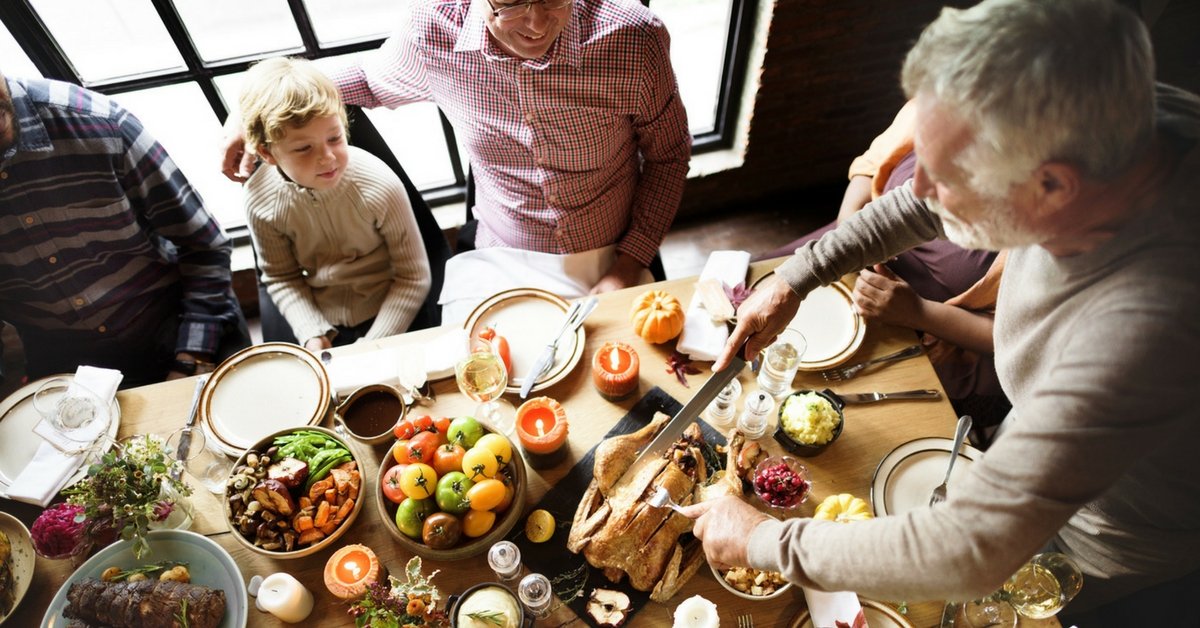Peace and Joy at Thanksgiving
Peace, joy, and gratitude – feelings we all wish for, but ones that can be hard to come by in our stressful world. When we’re bombarded with our own negative thoughts, it can make us feel as though we’re in a self-made prison of blame and judgments, making it feel impossible to relish the good in our lives.
During holidays with family (like Thanksgiving) old hurts and negative patterns can be triggered. A practice of mindful awareness can help to retain inner peace in the midst of old reminders. It is important to keep personal boundaries and retain inner light in the midst of triggers fro suffering.
Happiness has a biological basis, and research shows that we can take steps toward creating a positive and healthy mental space, despite the stresses of living in a demanding, technology-driven existence.
By actively exercising kindness and appreciation, we can promote the brain’s natural production of oxytocin and dopamine- two chemicals that help us feel pleasure and well-being, while decreasing the secretion of adrenaline and cortisol, which make us feel agitation and stress. By focusing on simple pleasures and practicing a mindfulness of the present moment, we can get out of our own heads and into the world around us, allowing for an increased awareness and connectivity to the blessings and positivism in our lives.
If you find yourself in a negative dance from the past, take time to regroup, take a walk, write or find other ways to take time out until you can feel centered again.After you calm down choose to celebrate the moment in constructive ways…help in a food kitchen, visit elderly relatives or old friends. Refuse to repeat the old family dramas that are hurtful to you.
It’s encouraging to know that learning mindfulness is possible. Ups and downs, joys and stresses, and hopes and expectations can all guide us to learn to take better care of ourselves and redefine the way we think about ourselves and others, which in turn changes our perception of the world around us. As neuroscientist Dr. Wayne Drevets attests, “In the brain, practice makes permanent.” If you would like to try some practices to foster your own peace of mind, here are some suggestions:
1. Focus on your breathing. When breathing in, think, “be.” When breathing out, think, “calm.” Breathe in and out slowly and purposefully.
2. Spend 30 seconds (or more) allowing your attention and senses to be fully in the present. Focus on simple, tactile pleasures; the scent of pine needles on a tree, a fabric’s texture against your fingers, or the taste and aroma of homemade bread.
3. Label your negative thoughts. Categorize them as “judgment,” “fear,” or “reliving the past,” as they pass through your mind. Then, redirect your attention back to the here and now.
4. Understand that you may have been programmed to engage in a negative way of thinking, and with this understanding, recognize that you have the choice to turn toward positivity instead. Many of us come to realize negativity has somehow become our “default” way of thinking, and we had been moving through life on autopilot.
Work on generating those positive chemicals: oxytocin and dopamine. Repeat in your mind:
- May I be at peace
- May I be healed
- May I send out loving kindness to others
- May you be at peace
- May you be healed
- May you be filled with loving kindness
5. Notice when you feel moments of joy, and focus on what brought you that joy.
6. Notice when you feel jealous or resentful and ask yourself why that happened. If a negative thought finds its way through, simply notice and acknowledge that thought, then return to the moment.
8. Forgive yourself. Say, “For the ways I was jealous or resentful, may I forgive myself.”
9. Give appreciation to yourself. Appreciate when you have offered kindness and love to others.
10. Notice the many blessing around you. Consider writing down these blessings as the day ends.
11. Intend to look for joy, love, and miracles around you. If you have trouble noticing such things, ask yourself why.
12. Set “mindfulness alerts” as reminders to stop during the day and experience the moment.
 Dr. Linda Miles is a leading expert on relationships and mindfulness. She is a psychotherapist, author, media expert and speaker. She has studied and worked in her field of counseling psychology for over 30 years and often speaks about mindfulness, stress reduction, mental health and relationships. Dr. Miles is personable and accessible in her books, articles and talks about how mindfulness and loving kindness can positively change your brain, your chemistry and your life. She can be reached at www.DrLindaMiles.com or followed on Twitter.
Dr. Linda Miles is a leading expert on relationships and mindfulness. She is a psychotherapist, author, media expert and speaker. She has studied and worked in her field of counseling psychology for over 30 years and often speaks about mindfulness, stress reduction, mental health and relationships. Dr. Miles is personable and accessible in her books, articles and talks about how mindfulness and loving kindness can positively change your brain, your chemistry and your life. She can be reached at www.DrLindaMiles.com or followed on Twitter.
Copyright: Rawpixel.com / BigStockPhoto.com







